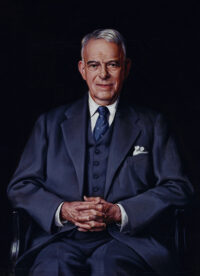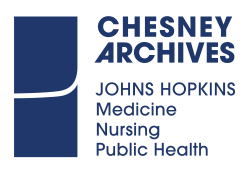Samuel James Crowe Collection

Samuel James Crowe
by Jacques Maroger
Collection Overview
Creator: Crowe, Samuel James (1883 - 1955)
Collection Date: 1905 - 1920
Extent: 5 linear feet
Biography
Samuel James Crowe was born in Washington County, Virginia. He received his A.B. from the University of Georgia in 1904. Upon the urging of his father to pursue a career in medicine, Crowe entered the Johns Hopkins University School of Medicine in 1904, obtaining his M.D. in 1908. After graduating from medical school, he was appointed assistant in surgery under Harvey W. Cushing in the Hunterian Laboratory. He worked with Cushing for four years as an assistant and resident, and when Cushing left Johns Hopkins for Harvard University, Crowe planned on accompanying him. William S. Halsted persuaded Crowe to accept directorship of the new division of otolaryngology at Johns Hopkins. To prepare for the new post, Crowe spent time training in Germany. He met the challenges of the new field and is credited with establishing the first modern clinic of otolaryngology in the United States. He was also the first to recognize that lymphoid tissue blockage of the eustachian tube was responsible for hearing loss in children and that such a loss could be prevented or reversed by the removal of the excess tissue through surgery or radon therapy. Crowe foresaw the role that the audiometer would play in the medical field and used the instrument in studies correlating functional performance of the ear with the histological sections of the middle and inner ear.
Scope and Content
The Samuel James Crowe Collection focuses on the first half of his career at Johns Hopkins. Series include correspondence, notes from experiments, miscellaneous ENT papers, and reprints. Patient files and photographs are primarily concerned with physical deformities. The collection also contains some personal memorabilia, including a notebook that Crowe kept while in Germany during the summer of 1905.
